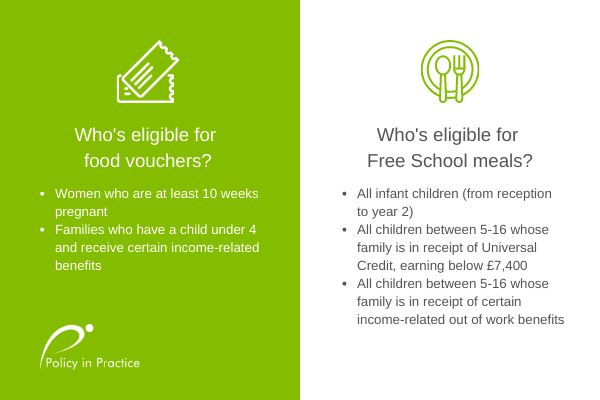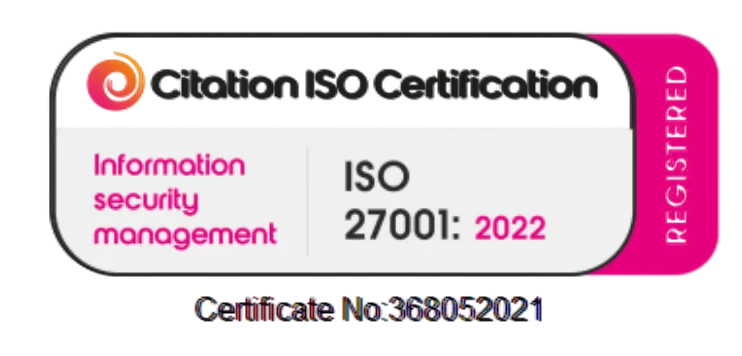Why it pays for the government to fund Free School Meals

New analysis by Policy in Practice about how to fund Free School Meals finds that parents will have to earn almost three times more than it would cost the government to feed their children over the Christmas holidays.
The government’s decision to not extend the free school meal vouchers to the October half term has become a hotly contested issue over the last few weeks. Our analysis backs Marcus Rashford’s campaign to expand free school meals to all children in families in receipt of Universal Credit, and undermines the argument made by some backbenchers that “It’s not for schools to provide food to pupils during the school holidays”.
What it costs to fund Free School Meals
The government issued meal vouchers worth £3 a day during the Easter and summer school holidays for each child that qualified for free school meals. Because of the way in which Universal Credit is withdrawn, at a rate of 63 pence for each pound earned, parents keep 37p for each pound they earn. This means that parents earning above their work allowance would have to earn £8.11 to pay for a school meal costing the government £3. With the minimum wage at £8.72 per hour, this means that a parent would have to work one additional hour per child, per school day to pay for their school meal. This would be challenging in normal circumstances, and impossible during a pandemic.
The work allowance is £292 per month for people with housing costs, or eight hours per week at the minimum wage, or £512 per month and 14 hours per week for people without housing costs, meaning that this level of earnings would be reached by almost anyone entering work.
Without action from the government, parents will have to find an additional £81 per child over the Christmas holidays. This equates to an additional £117m when extrapolated to all families in receipt of free school meals, compared to £43m for the government.
| Cost to government | Cost to parents | |
|---|---|---|
| Daily cost of a free school meal | £3.00 | £8.11 |
| Cost over the Christmas holiday | £30.00 | £81.08 |
| Cost over 13 weeks of school holidays | £195.00 | £527.03 |
| Total cost over Christmas | £43 million | £117 million |
| Total cost over all school holidays | £281 million | £759 million |
This analysis builds on a report originally put to the Social Security Advisory Committee in 2013 to improve work incentives within Universal Credit, and to the department for education in 2018, as part of a joint campaign with the Children’s Society and Child Poverty Action Group to extend free school meals to all children in receipt of Universal Credit.
The campaign calls on the government to extend free school meals to all children on Universal Credit. This is because the most a household can earn and still be eligible for free school meals is £617 per month. Once they cross this threshold, they face a considerable cliff-edge in their work incentives.
Universal Credit Data: An alternative to funded free school meals
This half term, the government has asked local authorities to bridge the gap, referencing the £9 million holiday activities and food programme funding and the £63 million in welfare assistance funding to local authorities to support families with urgent needs. We argue that there is more government can do to help local authorities target support to children and families most in need.
It’s possible for the government to identify every child eligible for healthy start vouchers using Universal Credit data. Councils can use this data to identify families facing food insecurity, and help them to access a host of other benefits during this pandemic, including council tax support and social tariffs.

Policy in Practice has written to DWP calling for Universal Credit data to be shared across government. Our white paper on the public interest case for Universal Credit data argues that sharing data with local authorities can improve the pandemic response. We continue to engage constructively with the department on this and other social security issues.
In summary, Policy in Practice is a proud signatory to Marcus Rashford’s petition to end child food hunger. We have previously called on the government to extend free school meals to 1 million more children on Universal Credit, to improve work incentives for families.
It’s difficult for parents to work during the school holidays at the best of times. To expect parents to find additional earnings during a pandemic, when it costs the government 60% less to achieve the same end goal, is unrealistic. The government is best placed to take responsibility.
Next steps
- Download this blog post as a PDF report here
- Media enquiries can contact us here or use the contact form



